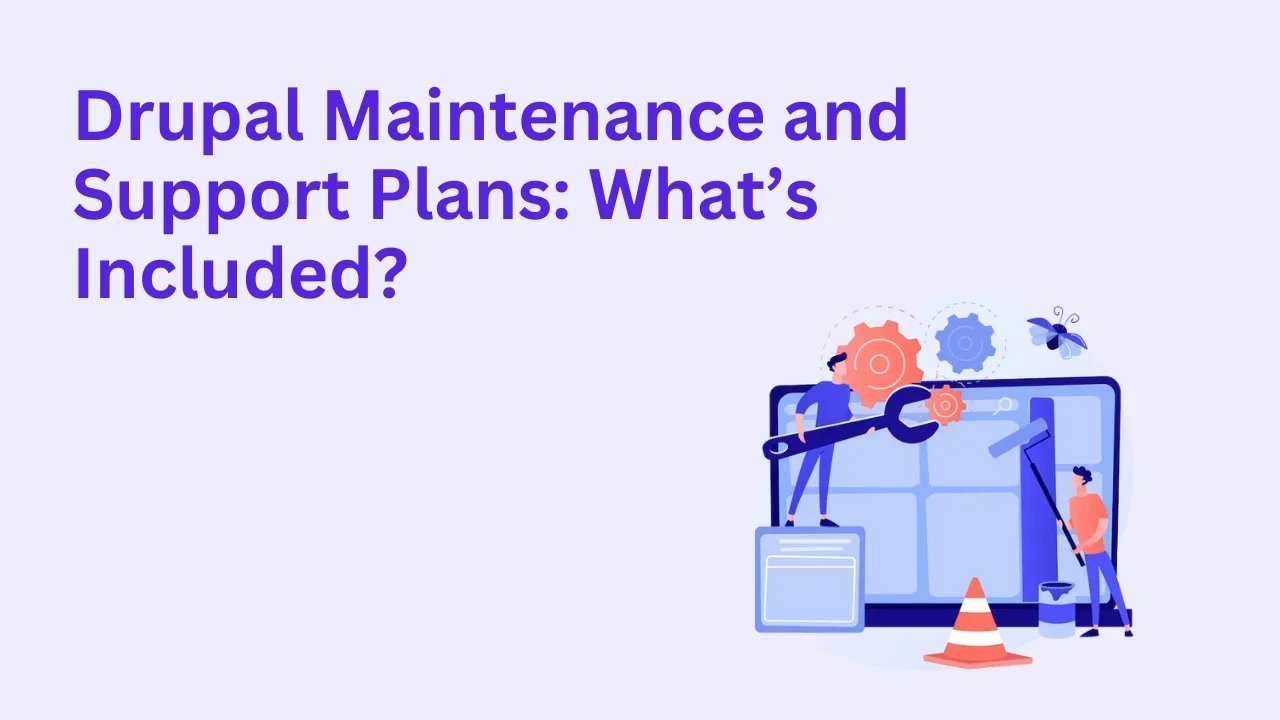Drupal Maintenance and Support Plans: What’s Included?

Launching your Drupal website is just the beginning. To keep it secure, fast, and running smoothly, ongoing maintenance and support are essential. Yet, many site owners aren't fully clear on what a typical Drupal support plan covers—or why it matters until something breaks.
In this guide, we break down what you can expect from a professional Drupal maintenance and support plan and why investing in one is critical for long-term success.
Why Ongoing Drupal Support Matters
Drupal is a powerful, flexible CMS—but with that power comes complexity. Frequent core updates, contributed module patches, server compatibility, and security alerts all require regular attention.
Without a proactive support plan, your site becomes vulnerable to performance issues, security threats, and compatibility problems that can disrupt user experience and harm your digital presence.
Core Inclusions in a Drupal Support and Maintenance Plan
While plans may vary by provider, here are the core services you should expect:
1. Security Updates and Patch Management
Drupal’s community regularly releases security advisories for core and contributed modules. A good plan ensures:
Timely core and module updates
Vulnerability patching
Proactive monitoring for known risks
This keeps your site protected against common attack vectors and exploits.
2. Performance Monitoring and Optimization
Your Drupal site should remain fast and responsive, even as content or traffic grows. Maintenance plans often include:
Page speed audits
Caching optimization (Drupal caching, Varnish, etc.)
Database cleanup and tuning
Performance improvements are essential for user experience and SEO.
3. Backup Management and Disaster Recovery
In the event of a crash or unexpected issue, reliable backups are your safety net. Plans typically include:
Automated daily or weekly backups
Database and file system preservation
Quick site restoration in case of data loss or site errors
Having a rollback strategy gives you peace of mind.
4. Compatibility and Upgrade Planning
With the recent shift to Drupal 10 and ongoing improvements in the platform, support plans help keep your site future-ready by:
Assessing module compatibility
Planning minor and major upgrades
Avoiding technical debt and deprecated code
If you’re unsure where your current site stands, a support team can evaluate your system and guide you forward.
5. Bug Fixes and Issue Resolution
Even well-built sites encounter bugs or small functionality gaps. Support plans include developer hours for:
Fixing broken layouts or modules
Troubleshooting backend/admin issues
Restoring failed integrations
This ensures minor issues don’t snowball into bigger problems.
6. Content Edits and Small Enhancements
Some plans allow for routine content updates or minor feature tweaks. This could include:
Updating banners or homepage sections
Modifying menus or footers
Adding new fields to content types
Support like this helps non-technical teams stay agile without always involving full-scale development.
7. Uptime and Error Monitoring
Using monitoring tools, support teams can detect and respond to issues even before users do. Plans often include:
Uptime monitoring
Error logging and alerts
Site health reporting
Proactive issue detection can save time, money, and user trust.
Choosing the Right Support Plan for Your Needs
The right support plan depends on your site’s complexity, how often you update content, and your internal team’s technical capacity. Whether you're a small business with occasional edits or an enterprise with constant content flow, there's a plan that fits.
How to Get Started
If you're unsure what your site needs or want an audit of your current setup, get in touch with our team. We’ll review your current Drupal environment, identify potential risks, and recommend the right level of support to keep your site optimized and secure.
Final Thoughts
Ongoing Drupal support isn’t just about fixing bugs—it’s about preventing issues, protecting your investment, and ensuring your site continues to serve your users reliably.
A well-structured support plan is one of the smartest decisions you can make for the long-term health of your Drupal website. When you’re ready, contact us or review our pricing options to find a plan that’s right for you.








